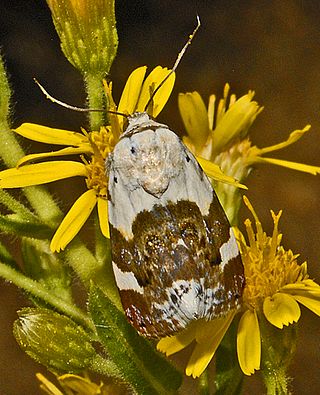Acontias is a genus of limbless skinks, the lance skinks, in the African subfamily Acontinae. Most are small animals, but the largest member of the genus is Acontias plumbeus at approximately 40 cm (16 in) snout-vent length. All members of this genus are live-bearing sandswimmers, with fused eyelids. A recent review moved species that were formerly placed in the genera Typhlosaurus, Acontophiops, and Microacontias into this genus, as together these form a single branch in the tree of life. This new concept of Acontias is a sister lineage to Typhlosaurus, and these two genera are the only genera within the subfamily Acontinae.

Acontias percivali, also known commonly as Percival's lance skink, Percival's legless lizard, and the Tanzanian legless lizard, is a species of small, legless (snake-like) lizard in the family Scincidae. The species is endemic to Africa.

The woodbush legless skink is a species of legless skink. It is found in the Wolkberg mountains of Limpopo Province, South Africa. Females of the species give birth to live young. This lizard species was formerly placed in a monotypic genus as Acontophiops lineatus. Morphologically the genus shows similarities to Acontias cregoi and a recent review placed both of these within the genus Acontias, which, as Acontias lineatus was already occupied, required a new name for this species.

Emmelia trabealis, the spotted sulphur, is a moth of the family Noctuidae. The species was first described by Giovanni Antonio Scopoli his 1763 Entomologia Carniolica.

Acontia is a genus of moths of the family Noctuidae. The genus was named by Ferdinand Ochsenheimer in 1816. Eusceptis, Pseudalypia and Spragueia are sometimes included in the present genus, but here they are tentatively treated as different pending further research. Many species of Tarache were also once placed here.

Acontia lucida, the pale shoulder, is a moth of the family Noctuidae. The species was first described by Johann Siegfried Hufnagel in 1766.

Acontia clerana is a moth of the family Noctuidae. It is found in Western Australia, New South Wales and Queensland.

Acontia crocata is a moth of the family Noctuidae. It is found from India to Australia. In 2003, it was recorded from Deux-Sèvres in France.
Acontia detrita is a moth of the family Noctuidae. It is found in New South Wales and Queensland.
Acontia thapsina is a moth of the family Noctuidae. It is found in Queensland.

Acontia nitidula, the Brixton beauty, is a moth of the family Noctuidae. The species was first described by Johan Christian Fabricius in 1787. It is found in South Africa, Europe, China, Japan and throughout India and Sri Lanka. It has also been recorded from Great Britain, but this record is doubtful.
This page is based on this
Wikipedia article Text is available under the
CC BY-SA 4.0 license; additional terms may apply.
Images, videos and audio are available under their respective licenses.







